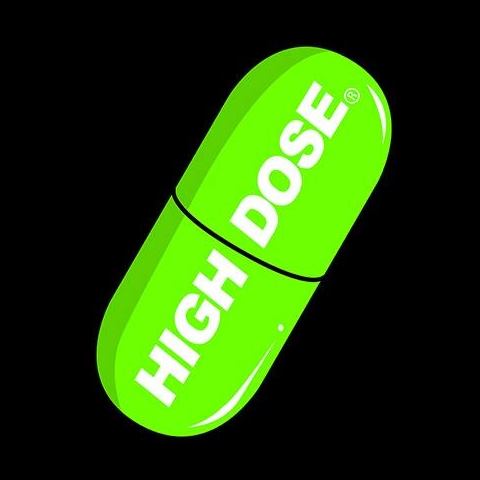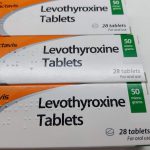What Is Considered A High Dose Of Prednisone By Doctors?

Prednisone belongs to a class of medications called corticosteroids. It works to treat patients with low levels of corticosteroids by replacing steroids that are normally produced naturally by the body. It works to treat other conditions by reducing swelling and redness and by changing the way the immune system works. Prednisone is not a common drug of abuse. Although obtaining it does require a prescription, it is not listed as a controlled substance by the United States Drug Enforcement Administration (DEA).
Prednisone is used alone or with other medications to treat the symptoms of low corticosteroid levels (lack of certain substances that are usually produced by the body and are needed for normal body functioning). Prednisone is also used to treat other conditions in patients with normal corticosteroid levels.
These conditions include certain types of arthritis; severe allergic reactions; multiple sclerosis (a disease in which the nerves do not function properly); lupus (a disease in which the body attacks many of its own organs); and certain conditions that affect the lungs, skin, eyes, kidneys blood, thyroid, stomach, and intestines. Prednisone is also sometimes used to treat the symptoms of certain types of cancer.
How should prednisone be used?
Prednisone comes as a tablet, delayed-release tablet, as a solution (liquid), and as a concentrated solution to take by mouth. Prednisone is usually taken with food one to four times a day or once every other day. Your doctor will probably tell you to take your dose(s) of prednisone at certain time(s) of day every day. Your personal dosing schedule will depend on your condition and on how you respond to treatment. Follow the directions on your prescription label carefully, and ask your doctor or pharmacist to explain any part you do not understand. Take prednisone exactly as directed. Do not take more or less of it or take it more often or for a longer period of time than prescribed by your doctor.
If you are taking the concentrated solution, use the specially marked dropper that comes with the medication to measure your dose. You may mix the concentrated solution with juice, other flavored liquids, or soft foods such as applesauce.
Swallow the delayed-release tablet whole; do not chew or crush it.
Your doctor may change your dose of prednisone often during your treatment to be sure that you are always taking the lowest dose that works for you. Your doctor may also need to change your dose if you experience unusual stress on your body such as surgery, illness, infection, or a severe asthma attack. Tell your doctor if your symptoms improve or get worse or if you get sick or have any changes in your health during your treatment.
If you are taking prednisone to treat a long-lasting disease, the medication may help control your condition but will not cure it. Continue to take prednisone even if you feel well. Do not stop taking prednisone without talking to your doctor. If you suddenly stop taking prednisone, your body may not have enough natural steroids to function normally. This may cause symptoms such as extreme tiredness, weakness, slowed movements, upset stomach, weight loss, changes in skin color, sores in the mouth, and craving for salt. Call your doctor if you experience these or other unusual symptoms while you are taking decreasing doses of prednisone or after you stop taking the medication.

What is considered a high dose of prednisone?
According to drugs.com, the starting dose of prednisone may be between 5 mg to 60 mg per day. A dose above 40 mg per day may be considered a high dose. However, everybody responds differently to prednisone, so what might be a high dose depends on the person and the condition.
In general:
- Low dose: less than 7.5 mg per day
- Moderate dose: between 7.5 mg and 40 mg per day
- High dose: 40 mg to 60 mg per day
Sometimes doses much higher than the upper limit of 60 mg are given through an IV for short periods.
Doctors prescribe prednisone at the lowest effective dose for the shortest possible time. If prednisone is not effective, it should be stopped as soon as possible. The dose and time need to be adjusted for each patient based on the condition and response to treatment.
The reason that prednisone is used with care is that prednisone can pose serious side effects and long-term risks. In patients who need longer dosing of prednisone, it may be given every other day. This may reduce side effects and complications.
What are the side effects of prednisone?
The common side effects that can occur with prednisone include:
- confusion
- excitement
- restlessness
- headache
- nausea
- vomiting
- thinning skin
- acne
- trouble sleeping
- weight gain
If these effects are mild, they may go away within a few days or a couple of weeks. If they’re more severe or don’t go away, talk with your doctor or pharmacist.
Serious side effects
Call your doctor right away if you have serious side effects. Call 911 if your symptoms feel life threatening or if you think you’re having a medical emergency. Serious side effects and their symptoms can include the following:
- Severe allergic reactions
- Changes in emotions or moods, such as depression
- Changes in vision
- Eye pain
Infection. Symptoms can include:
- fever or chills
- cough
- sore throat
- trouble or pain in passing urine
High blood sugar. Symptoms can include:
- increased thirst
- passing urine more often
- feeling sleepy or confused
- swelling of your ankles or feet
What drugs can interact with prednisone?
Prednisone oral tablet can interact with other medications, vitamins, or herbs you may be taking. An interaction is when a substance changes the way a drug works. This can be harmful or prevent the drug from working well.
To help avoid interactions, your doctor should manage all of your medications carefully. Be sure to tell your doctor about all medications, vitamins, or herbs you’re taking. To find out how this drug might interact with something else you’re taking, talk with your doctor or pharmacist.
Examples of drugs that can cause interactions with prednisone are listed below.
Mifepristone
Taking mifepristone with prednisone may prevent prednisone from working correctly. Avoid taking mifepristone if you’ve been taking prednisone regularly for a long time.
Bupropion
Taking bupropion with prednisone may cause seizures.
Haloperidol
Taking haloperidol with prednisone may cause heart rhythm problems.
Live vaccines Taking prednisone weakens your immune system. If you receive a live vaccine while taking prednisone, your immune system might not be able to handle it properly. This may lead to an infection.





